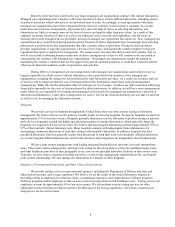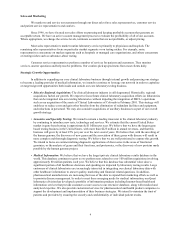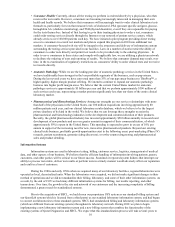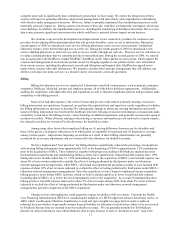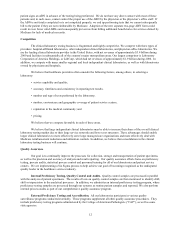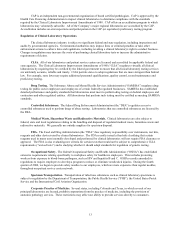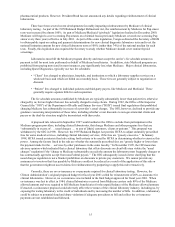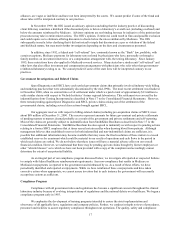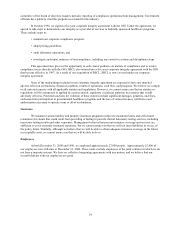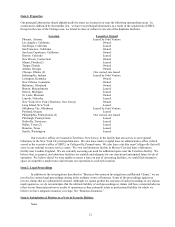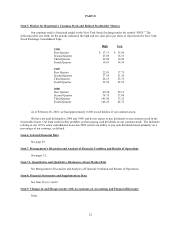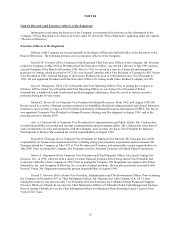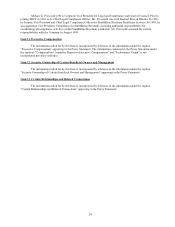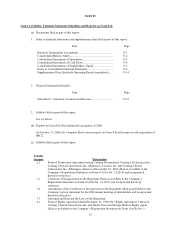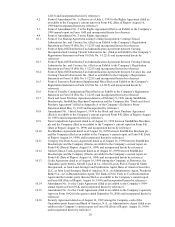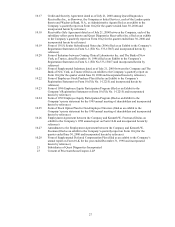Quest Diagnostics 2000 Annual Report Download - page 37
Download and view the complete annual report
Please find page 37 of the 2000 Quest Diagnostics annual report below. You can navigate through the pages in the report by either clicking on the pages listed below, or by using the keyword search tool below to find specific information within the annual report.17
alliances, are vague or indefinite and have not been interpreted by the courts. We cannot predict if some of the fraud and
abuse rules will be interpreted contrary to our practices.
In November 1999, the OIG issued an advisory opinion concluding that the industry practice of discounting
client bills may constitute a kickback if the discounted price is below a laboratory’s overall cost (including overhead) and
below the amounts reimbursed by Medicare. Advisory opinions are not binding but may be indicative of the position that
prosecutors may take in enforcement actions. The OIG’s opinion, if enforced, could result in fines and possible exclusion
and could require us to eliminate offering discounts to clients below the rates reimbursed by Medicare. The OIG
subsequently issued a letter clarifying that it did not intend to imply that discounts are a per se violation of the federal
anti-kickback statute, but may merit further investigation depending on the facts and circumstances presented.
In addition, since 1992, a federal anti-“self-referral” law, commonly known as the “Stark” law, prohibits, with
certain exceptions, Medicare payments for laboratory tests referred by physicians who have, personally or through a
family member, an investment interest in, or a compensation arrangement with, the testing laboratory. Since January
1995, these restrictions have also applied to Medicaid-covered services. Many states have similar anti-“self-referral” and
other laws that also affect investment and compensation arrangements with physicians who refer other than government-
reimbursed laboratory testing to us. We cannot predict if some of the state laws will be interpreted contrary to our
practices.
Government Investigations and Related Claims
Quest Diagnostics and SBCL have each settled government claims that primarily involved industry-wide billing
and marketing practices that were substantially discontinued by the mid-1990s. The most recent settlement was finalized
in December 2000, when we entered into a civil settlement under which we paid a total of approximately $13 million to
settle similar claims with respect to Nichols Institutes’ former regional laboratories. This settlement was covered by the
indemnification from Corning Incorporated as described in Note 17 to the Consolidated Financial Statements. However,
there remain pending against Quest Diagnostics and SBCL private claims arising out of the settlement of the
governmental claims, including several class actions brought against SBCL.
Our aggregate reserves with respect to billing-related claims (including pre-acquisition claims of SBCL) were
about $88 million at December 31, 2000. The reserves represent amounts for future government and private settlements
of pending matters or matters deemed probable as a result of the government and private settlements and self-reporting.
Most of the claims are generally subject to indemnification from SmithKline Beecham as described in Note 17 to the
Consolidated Financial Statements. SmithKline Beecham has also agreed to indemnify us with respect to pending actions
relating to a former SBCL employee that at times reused certain needles when drawing blood from patients. Although
management believes that established reserves for both indemnified and non-indemnified claims are sufficient, it is
possible that additional information may become available that may cause the final resolution of these matters to exceed
established reserves by an amount which could be material to our results of operations and cash flows in the period in
which such claims are settled. We do not believe that these issues will have a material adverse effect on our overall
financial condition. However, we understand that there may be pending qui tam claims brought by former employees or
other “whistle blowers” as to which we have not been provided with a copy of the complaint and accordingly cannot
determine the extent of any potential liability.
As an integral part of our compliance program discussed below, we investigate all reported or suspected failures
to comply with federal healthcare reimbursement requirements. Any non-compliance that results in Medicare or
Medicaid overpayments is reported to the government and reimbursed by us. As a result of these efforts, we have
periodically identified and reported overpayments. While we have reimbursed these overpayments and have taken
corrective action where appropriate, we cannot assure investors that in each instance the government will necessarily
accept these actions as sufficient.
Compliance Program
Compliance with all government rules and regulations has become a significant concern throughout the clinical
laboratory industry because of evolving interpretations of regulations and the national debate over healthcare. We began a
compliance program early in 1993.
We emphasize the development of training programs intended to ensure the strict implementation and
observance of all applicable laws, regulations and company policies. Further, we conduct in-depth reviews of procedures,
personnel and facilities to assure regulatory compliance throughout our operations. The quality, safety and compliance



